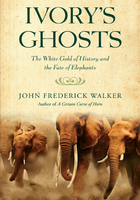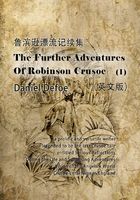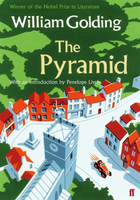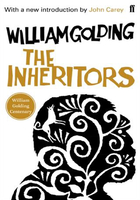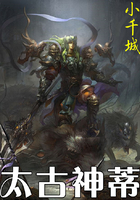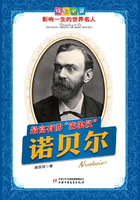On the walk back to his apartment, Cooper took stock of his situation. His carefully organized days were disintegrating. He had let Parrish's disappearance invade his discipline, and he did not wish to have any involvement with Beth Davis.
By the time he reached his apartment, he had resolved to fight his way back to his routine, and regain control of his life. In this brief window of disorientation, he found himself contemplating his future, which added to his distress. He had caught himself beginning to think ahead, to a time when his unemployment checks would eventually run out, something he had managed to put out of his mind. A realistic calculation revealed an end of cash flow to a little more than three months into the future. What would he do then? It was a question he had successfully ducked for the last few months. He decided that he must get back to that place of calm between yesterday and tomorrow. He berated himself for falling into the trap of anxiety and partly blamed Parrish. Also, Beth Davis.
Letting himself into his apartment, he went to the refrigerator, took out a Healthy Choice packet from the freezer and put it in the microwave. Then he opened a drawer and took out a rolled-up paper napkin that contained a plastic fork, knife, and spoon. Except for the frozen dinners, eating utensils, a few plastic glasses, a coffee mug, and a large jar of instant coffee, there was nothing in the refrigerator or in the drawers and cabinets. He used the hot water from the sink to make coffee in the morning before he left for the club.
In the closet, he had five gray gym sweatpants, two dark blue suits still wrapped in plastic from the dry cleaners, and a pair of blue jeans. On the shelf above the suits were two blue laundered and folded dress shirts. Two ties dangled from a hook. On the floor of the closet was a pair of tasseled loafers, once shined but now a bit dusty, and three pairs of Reeboks, one of them already worn down and barely usable from his effort on the treadmill.
He had tried hard to think of the treadmill as a perfect metaphor for his life, making movement but standing still, going nowhere, locked in place. It was getting increasingly difficult to live that metaphor. Reality had started to intrude.
Cooper had carefully organized his small apartment for bare utility. He had even contemplated not having a telephone, but that seemed too extreme. A telephone was necessary even though it would be a connection outside the orbit of his circumscribed world. He had totally rejected the idea of a cell phone.
It had required a great deal of thought to eliminate all superfluous possessions from his life. He had seven pairs of boxer briefs, seven T-shirts, seven pairs of casual socks and two pairs of black dress socks. He had three pairs of pyjamas. When he went to the club, he carried a little tote bag containing a change of underwear, socks, a jogging outfit, and his toiletries. Three times a week he would wash his dirty clothes in the basement laundry room. In his linen closet he had two queen-sized fitted sheets, and two extra pillowcases. On his bed was a comforter and two pillows stacked one on top of the other, since he slept better with his head much higher than his body.
When Cooper opened his kitchen drawer, he was surprised to find that the eating utensils weren't as neatly stacked as he imagined them to be the night before. At first, he attributed that to his own carelessness, but he had finally reached a point when he could do these things by rote. Perhaps the break in his usual routine was affecting his sense of organization. This thing with Parrish at the gym had taken its toll, but even thinking that brought back a level of anxiety in Cooper.
Even his closet, the way his clothes were hanging, suggested that he had been less than alert that morning when he changed into his jogging outfit. A pair of his gray sweat pants had actually slipped off its hanger and was in a heap on top of his Reeboks.
Cooper ate his Healthy Choice meal without relish, which he took to be a good sign since he ate only for sustenance these days, and no longer for enjoyment. It had been increasingly difficult to enjoy this diet on a daily basis. Mostly, every meal in the box, whether it was meat, fish, or vegetarian, tasted exactly the same; he even accepted this sameness as yet another good thing.
After dinner, Cooper turned on the reading light above his one upholstered chair and went to his stacks of books piled against the wall. He was determined to get back into Thomas Mann's The Magic Mountain. The books were usually alphabetized, but today he couldn't find The Magic Mountain. He looked everywhere in the apartment in vain. He looked under the bed, tore off the pillows and blankets, upended the upholstered chair, looked in the closet, pulled open every drawer in the apartment, and inspected the bathroom.
With all possibilities checked, he sat for a long while wracking his memory. Then he looked toward his stacked books again. His eye rolled over the books whose authors' names ended in "T." He saw Vanity Fair by William Thackeray, and under it, inexplicably, was The Magic Mountain.
Had he been so preoccupied with Parrish that even the simple act of putting a book away had been done incorrectly? Cooper couldn't imagine himself doing that. Yet there it was.
What next? he anxiously wondered.
He pulled out The Magic Mountain and tried to read, but soon the words swam incoherently in front of him. He put the book away, got into his pyjamas, and slipped under his blankets. He wasn't tired, but he couldn't still the thoughts about his failing memory. Maybe it was the first signs of Alzheimer's. It was possible, he mused. Sometimes people got it quite early.
Cooper mentally went over those things that were awry, the stacked utensils, the sweats on the closet floor, the misfiled book. After awhile, he got up, put the light on, and contemplated the books. They were neatly stacked, but it occurred to him that they were too neatly stacked. He had taken great care in stacking them, mostly to prevent them from falling. But he hadn't remembered lining them up so perfectly with the corner of each book fitting so exactly with the corner of those above and below.
He reviewed his conversation with Beth Davis. Why is she so anxious to find out what had happened to Parrish, a man who had never even looked her way? He had to admit, it was intriguing, mystifying, and disturbing to a certain extent. As he ruminated over the situation, he became panicked by the idea that he might never get himself back to his routine unless he found Parrish.
No. Found out about Parrish, he corrected himself.
By morning, Cooper had convinced himself that only by figuring out what had happened to Parrish would he stop what was happening to him. He laid out a plan. He would call all of the advertising agencies in town until someone whom Parrish had worked with could come up with a phone number. Then he would call Parrish, just to hear his voice, and that, he hoped, would be the end of it. It seemed so logical, so simple an idea. Cooper wondered why he had not thought of it before.
He looked up advertising agencies in the Yellow Pages and called them one by one.
"Hi, this is Jack Cooper," he told the secretary. "I'm looking for a Mike Parrish."
It proved to be more complicated than he had imagined. Many of the offices had not yet fully opened, and none had even heard of Parrish. People change fast at these agencies, Cooper knew, but he persisted anyway.
At one agency, he got a bookkeeper who was willing to look at the agency's records. He found that Parrish had done some work for them, and had been paid directly by check. Parrish had requested that he collect the check in person instead of by mail, so no record of either an address or a telephone number was on file.
"How was the work ordered?" Cooper asked, knowing that someone had to discuss the work with Parrish before he began.
"Beats me," the bookkeeper said.
Cooper asked to speak with the head of the agency, but he wasn't in, and Cooper settled for one of the account executives.
"I remember," the man said. "It was for some auto dealer. That's when we had auto accounts. Simpson was probably on that one."
"You're the best," Cooper said, noting that he was already reverting to the old ass-kissing lexicon of his old life. "How can I get a hold of Simpson?"
"Gone," the man said. "I think he retired somewhere to Florida."
It was like that with all the other agencies. Parrish was only vaguely known. There had been work assigned at a few places, but all that was left in the records was his name.
Cooper kept looking at his watch. He was already going to be late for his workout. That was one part of his life he was determined to preserve, and he was certain that once the Parrish affair was resolved, he would slide back into his life like a foot into an old, comfortable shoe.
Toward the end of the time he allotted himself to call the agencies, he struck something promising. One of the owners of a small agency remembered Parrish well.
"Funny guy… a loner," the man said. His name was Runyon. "I liked his work, but he was very secretive. Insisted to be paid in cash. That's why I remember him, I guess."
"That's Parrish," Cooper said, elated with this bit of successful detective work. "I'm trying to reach him."
"A job?"
It sounded to Cooper like a very logical idea. The others hadn't even asked him why he was inquiring.
"Yep. A big job."
"If I remember, I think we had a contact number on file."
That was getting somewhere, Cooper thought.
"I'll have to look it up," Runyon said.
"I don't want to give you any trouble," Cooper said.
"I can't promise you anything."
"I understand," Cooper replied. He gave Runyon his phone number, feeling only vaguely optimistic.
It was nearly ten o'clock. Not once had he been late for his workout.
Late for what? he wondered. It didn't matter to anyone but himself.
Before he could leave, he checked the apartment, making sure that everything was in its place. He put Magic Mountain where it belonged. He checked the silverware in their wrappers and the Healthy Choice boxes in the freezer, made sure his clothes were neatly hung in his closet. He made the bed, as he always did, with sharp hospital corners, and puffed the two pillows and placed them one on top of the other. Hesitating a moment by the front door, he took a mental snapshot of the apartment and its contents, satisfied that he had restored the order necessary for his tranquility.
On the street, Cooper maintained a swift jogging pace, periodically breaking into a sprint. As he ran, he caught himself doing something unusual: he was studying the faces of the oncoming pedestrians, hoping that one of them might be Parrish. It occurred to him that such an obsession might lead to him spending all his waking hours roaming the streets, inspecting public places, movie theaters, supermarkets, shopping malls, always looking for Parrish. Cooper decided he would visit all the other health clubs in the area, pretending that he was interested in joining. During the sales tour, under the guise of inspecting the facilities, he would search for Parrish.
"Exercise is addicting," the woman behind the counter had said. He supposed there was some truth to that, although he considered the entire process the real addiction-not only exercise itself, but also the planning, the preparation, the gear and equipment, the before and after rituals. It was more like a religion, with its concepts of heaven and hell: healthy being heaven and unhealthy being hell. It was a cultic way of life, controlled and disciplined.
Cooper was a half hour late when he finally strode into the exercise room, and he had a strange feeling that something in the atmosphere had changed. He felt that he was being observed, despite the fact that eye contact with the other members was sporadic and indifferent. At first, he attributed it to his own break in routine, but then he realized that there was something more awry here.
He did a slow survey of the room. The regulars were doing their workouts. Melnechuck was wiping off his sweaty bald head. Anni was concentrating on the step machine. Blake was instructing one of the women on the use of the leg press machine. Beth was doing bicep curls, but she had slowed her sets, as if she were waiting for him to acknowledge her. Cooper's gaze momentarily lingered on her. He saw her eyes shift in the direction of the treadmill Parrish frequently used.
At first, he was stunned. For a moment, his mind told him that it was Parrish on the treadmill, and his heart thumped hard against his chest. Then the illusion disintegrated. A man who looked like Parrish was on the treadmill, someone Cooper had never seen before. He was overcome with hostility.
How dare he!
Cooper cast a troubled glance toward Beth, who shrugged and abruptly turned away. He could not chase away his anger. Blake would have noticed by now, and would be mocking him with silent laughter. What were the others thinking of him? He especially wondered what Beth was thinking. He took his position on the treadmill, but instead of a gradual warm-up, he accelerated immediately, trying to fulfill a sudden need to be competitive with the strange man next to him. Cooper imagined himself in a race, his mind focused on winning at all costs.
Cooper's feet pounded the treadmill. Beside him, he heard the other treadmill's motor change pitch, speeding up, straining for more revolutions. He too pushed his controls to the maximum setting. The man beside him seemed to match it. Cooper concentrated on the speed of his legs, pushing himself far beyond his normal limits. In his mind it became a test of will and endurance, the prize being Parrish's honor. The man had taken Parrish's treadmill, and he needed to be defeated.
The race went on past Cooper's usual cutoff point. The digital screen displayed forty-five minutes. He imagined himself speeding along a landscape, upward over mountain trails, around winding switchbacks, through flat pastures, downward following flowing streams.
Then suddenly he detected a change in the whir of the treadmill beside him. The man was faltering. Cooper was winning, but he did not slow down. Peripherally, he could see the man decelerating. Sweat soaked through his T-shirt and Cooper could hear his hard breathing as the man brought the speed of the treadmill down gradually.
The man must taste the humiliation of defeat, Cooper thought. This win was for Parrish.
Cooper saw Blake watching him intently. Was Blake disappointed that he had won?
Finally, Cooper also decelerated. Winning the race had calmed him down. As he wound down, he saw Beth studying him with more than her usual probing intensity.
What does she see? he wondered.
"Sig Kessler," an accented voice said. It was the man on the treadmill beside him. He had gotten off and was blotting his face with a towel. He held out his hand and was smiling broadly. Cooper, used to Parrish's stoicism and disinterest, was taken aback. Although he was reluctant to respond, there seemed no way for Cooper to avoid it.
"Jack Cooper," he replied, taking the man's hand. It was moist.
"Been coming here long?" Kessler asked.
"Yeah," Cooper said, hoping his closed attitude might discourage the man from further conversation.
"I just joined. You like it?"
"It's okay."
"I need it. I live a sedentary life. I'm a chauffeur."
Sig Kessler seemed to be waiting for a response. Cooper wasn't inclined to give one. He had already received more information than he wanted from this man. Cooper turned away and moved onto the weight machines.
When he finished his sets, he started toward the locker room, but was waylaid by Beth.
"I see they've already got a replacement."
He knew what she meant, but it seemed an odd way to put it.
"He's a member. He has a right to use any machine in the room he wants."
"You didn't look too happy about him being there."
Beth stood in front of Cooper, blocking his way.
"I guess there's no escaping your surveillance," Cooper said, unable to hold back his sarcasm.
"Big Sister is watching," she said.
"I wish she wouldn't," he sighed, trying to get past her.
"We could have a cup of coffee, like yesterday," Beth said hurriedly just as he outmaneuvered her.
"Can I clean up first?" he said, showing little enthusiasm.
"I'll take that as a 'yes,'" she said, winking.
Now he was dead certain. The woman was coming on to him. He'd have to figure out a way to avoid her.
Kessler was in the sauna when he got there.
"Great workout," he said. "You?"
"Fine," Cooper said. Kessler was ensconced in the same spot that Parrish had chosen. Again, Cooper was distressed about this man's intrusion, especially in the sauna, where Cooper and Parrish had had their brief but intense conversations. Cooper cut short his usual half-hour, took a quick shower, and went to his locker to retrieve his tote bag.
As always, he had put it in locker number seven. But today, when he opened the locker, it was empty. That was impossible. He had always put his club bag in the exact same place. He would not have put it anywhere else. He began to open the other lockers in the row, and then in the rest of the aisles. Finally, he found his tote bag in locker number five. He was flabbergasted. Had his memory been playing tricks on him? It reminded him of the misplacements in his apartment.
Going downhill in a hand basket, he told himself ominously.
When he opened the bag, he found another aberration. Normally, he rolled his sweatpants by folding one leg over the other and then rolling them from the ankles. These were rolled from the waist. He didn't remember doing it, and anything different was a red flag. That morning there had been enough red flags to stage a parade.
Leaving the locker room, he went into the corridor to discover that Beth was waiting for him. He had forgotten to figure out a way to avoid her. She waved when she saw him. He was not looking forward to their meeting.
"I ordered our coffees," she said.
"Thank you."
"When you were late today, I thought you might have gone the way of Parrish," she said when they sat at the same table as yesterday.
"Which way is that?" he asked, lifting his cup.
"You know. Absent without leave," she said, offering a broad smile. She put her arms behind the chair, which revealed the full outline of her breasts. The woman was relentless in her strategy. He could see her nipples pressing against the fabric of her top. She was definitely trying to tempt him.
"Now why would you think a thing like that?"
"When you didn't show up this morning at your usual time, I…." She paused and pursed her lips. "You know," she said when she found her voice again, "it was like suddenly finding something out of place. Like Parrish not showing up."
"I can understand that," he agreed.
"Can you?"
"Abrupt changes can be upsetting."
"Still no clues?" she asked.
"Clues?" Cooper replied. "I'm not Sherlock Holmes."
Beth cleared her throat. "Will you be angry with me if I tell you something?" she asked.
"Depends what you tell me."
"I called an advertising agency I know. Remember, you said he was in advertising? The man I spoke with said that someone else had inquired about Parrish. They told me that it was you. Any luck?"
"I don't believe this," Cooper said with astonishment. He gave her a hard look.
"You're angry," she said.
"As a matter of fact, I am."
"Just trying to help," she said. "No crime in that."
He looked at her and shook his head. Once again she held his stare, and he was the first to turn.
"Well?" she said ignoring his expression of annoyance.
"Well what?"
"Any leads?"
He hesitated. "I got a 'maybe.' Somebody was checking it out." He paused suddenly, feeling foolish. "Why the hell am I doing this?"
"Doing what?"
"This Parrish thing is going too far," he said. "Frankly, I feel like I'm being stalked."
"Stalked? By who?" she asked. "What is it?"
"By you! Really, Beth…." He chided himself for crossing this line of intimacy by using her first name. I'm not interested in playing any games. If you have it in your mind that I want or need a relationship, forget it. I don't want to insult you. But please. Can you back off?"
"I don't know what you're talking about," she said, taken aback. "You've got it wrong."
Cooper suddenly realized that he knew absolutely nothing about her. Was she even single? Had he jumped too quickly to conclusions?
"You're wrong," she repeated. "It's not what you think."
"Then why?"
"My reasons are the same as yours," she said. "I'm curious about Parrish. That's all." They seemed to be going around in circles.
"He could have joined another club," Beth persisted.
"His prerogative," Cooper shrugged. The hell with Parrish, he thought.
"Ours is not the most modern club in the world," she said. "But it serves our purposes and it's a lot less crowded."
"Part of its charm, I guess," Cooper said.
"Did he say he wanted to join another club?" she asked.
"I don't want to give you the impression that he confided in me," Cooper said.
"Was he married?"
"I don't think so."
Beth raised her eyes again, inspecting him, boring in.
"Are you?"
"Christ, Beth!"
"No significant other?" the woman asked. "There I go. Miss Curiosity."
"The answer is no," he croaked angrily, upending his coffee cup. "I'm divorced."
"There. We have something in common. Except that I'm a widow."
She seemed to warm to the similarity, and he was immediately sorry he had blurted out the information.
"No kids?" she asked.
"No."
"Me neither."
He stood up.
"I'm sorry," she said. "I can see that you're upset."
"Can you also see that I'm not interested in your curiosity or your company?" He tried to control his rising anger. "I would really appreciate being left alone."
He started to leave the room.
"Jack!" she called. He turned. "You think he'll turn up?" Beth asked.
"You've got Parrish on the brain," Cooper said.
"You do too."
He glanced at her for a moment, just enough to see in her eyes something he had not seen before: pain.

